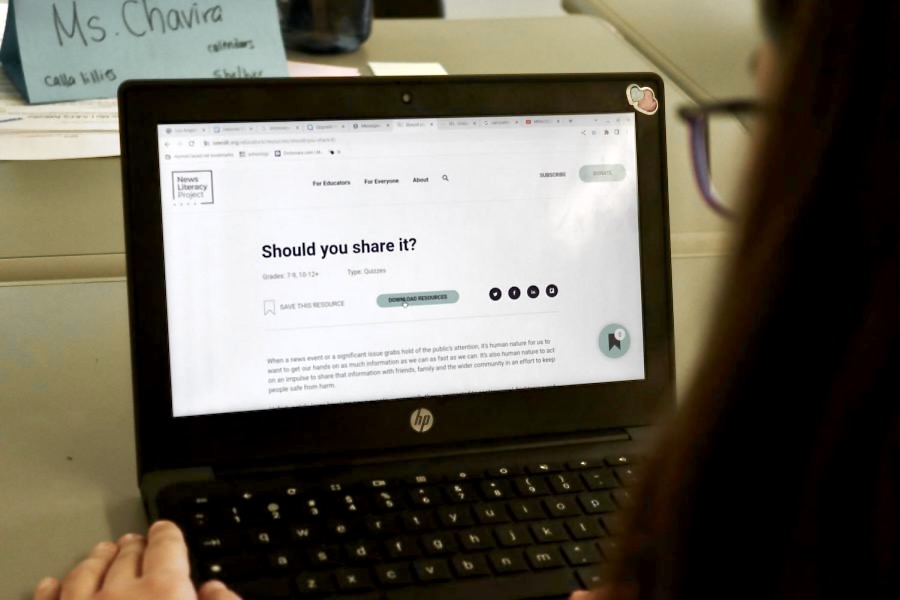Editorial: Scrolling danger: student online literacy must improve
A freshman in journalism teacher Adriana Chavira’s fourth period photography class takes a news media literacy quiz during Media Literacy Week, Jan. 20-27. Media literacy is important in understanding and identifying misinformation, which can take many forms such as lies or propaganda.
February 7, 2023
Students’ ability to navigate all the information around them is only getting more important as we adapt to an increasingly online world. There is a lot of misinformation and disinformation online. Both misinformation and disinformation are the spread of false information, though they differ in the intention behind them. Whereas misinformation is accidental, disinformation is the deliberate spread of wrong information, such as propaganda. This makes it difficult to discern fact from fiction.
As student journalists, it is our job to provide trustworthy information but we also want to promote the use of credible news sources. That is why media literacy is so important to understand. It may be easier to find information from the first website we see. A video or a post on social media, but the easiest way to get news is not always the best way.
First and foremost, you should be wary of information that may not seem credible. If you know that a source you are looking at isn’t reputable, don’t take information from them. It’s always better to be safe than sorry. Do your research before you believe in information you see online or on social media. If you do see something online that you aren’t too sure whether it is true or not, then it’s always best to find credible sources and check. To check if a news source is credible, ask yourself if there is biased information or who owns the news source. These steps should be taken before you share content because fact checking will help prevent spreading misinformation in the first place.
The Pearl Post students learn about news literacy and take quizzes to better our understanding. We use resources such as the News Literacy Project (NLP), which helps people learn to identify credible news sources. NLP shares tips, a podcast and quizzes to test your knowledge on news literacy. Freshmen in the photography classes also do weekly assignments from the NLP’s Checkology online curriculum.
As we spend more time online, other dangers apart from misinformation can come with it. In late November last year, former Virginia police officer, 28-year-old Austin Lee Edwards, catfished a teen by pretending to be a 17-year-old. Edwards ended up getting the personal information of a 15-year-old girl he developed a relationship with online. He groomed the teen before ultimately killing three members of her family who resided in Riverside.
This tragic event brings up more than just misinformation on social media. Catfishing and grooming have become easier than ever due to social media. People can become a whole new person online and deceive others of who they truly are. The motives of people online can vary and sometimes they can be misleading or malicious. So don’t be the next victim. There are a lot of dangers online apart from misinformation and online predators so be wary of what you see and do online.








